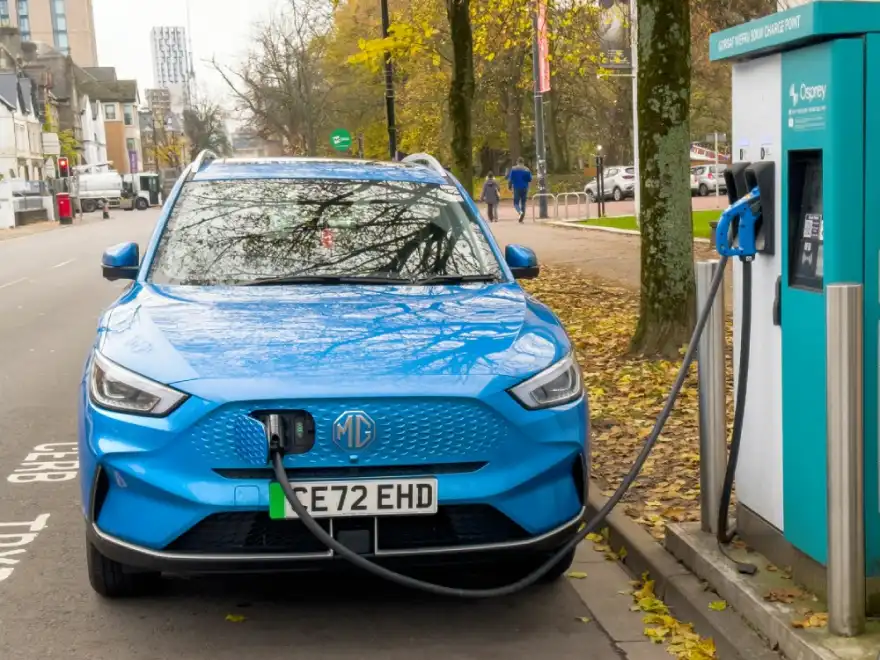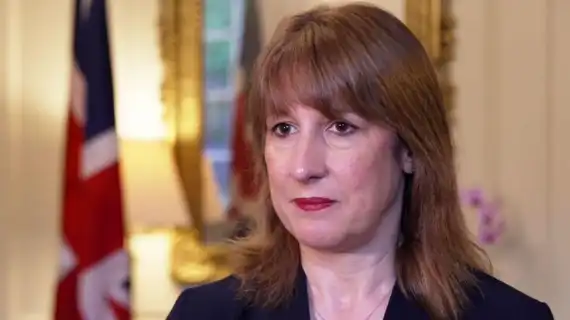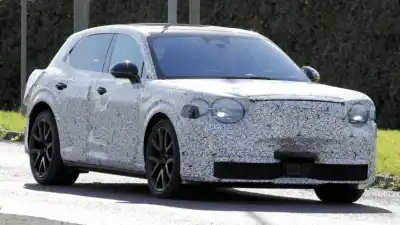
Electric car owners are set to face a new pay-per-mile charge in the upcoming Budget, The Telegraph has revealed.
The Chancellor is expected to announce on November 26 that electric vehicle (EV) drivers will pay 3p for every mile they drive, in addition to existing road taxes.
If introduced, the system would begin in 2028 following a public consultation, and is expected to cost the average driver around £250 per year.
The Treasury is bringing forward the plan as income from fuel duty continues to fall due to the shift from petrol and diesel cars to electric models. By the time the change is introduced, an estimated six million people are expected to be driving EVs.
Government ministers are likely to describe the measure as fair, since petrol car drivers currently pay around £600 a year in fuel duty. They will also stress that the scheme is not a form of tracking, as it will rely on estimated annual mileage rather than real-time monitoring.
However, the proposal could open the door to a wider system where all drivers are taxed per mile, prompting debate about how such a policy could be enforced.
Sir Mel Stride, the Conservative shadow chancellor, said: “If you own it, Labour will tax it. It would be wrong for Rachel Reeves to target commuters and car owners in this way just to help fill a black hole she has created in the public finances.
“With Labour’s cost of living crisis, now is not the time to hit hard-working families and businesses with another tax raid.”

How it would work
Plans for pay-per-mile road tax have been discussed by successive governments and experts for years.
Under current proposals, the system would be linked to the existing vehicle excise duty (VED) payment made by all UK motorists. Since April, electric vehicle owners have also been required to pay VED.
The new version, nicknamed “VED+”, is designed to increase the contribution from electric car drivers.
Drivers would be asked to estimate how many miles they expect to cover in the year ahead and pay 3p per mile. If they drive fewer miles, some of the payment would roll over to the following year. Those who exceed their estimate would pay a top-up.
At the proposed rate, the charge would add roughly £3 to a one-way journey between Cambridge and Oxford, or £12 from London to Edinburgh.
Hybrid car drivers would also be affected, but they would pay a lower rate.
The Treasury expects the policy to generate around £1.8 billion in additional revenue by 2031, helping to strengthen the public finances.
A Treasury spokesperson declined to comment on Budget speculation.
The announcement comes after Ms Reeves said that “all will have to contribute” to help restore the UK’s finances, hinting that tax rises could feature heavily in this year’s Budget. Many see this as unfair, arguing that the UK’s financial problems stem from too many people taking more from the system than they contribute.
While the government has promoted electric cars as a way to cut emissions, the rapid uptake has reduced the amount of tax raised from fuel duty, which electric cars do not pay.
Official estimates suggest that by 2040, the Treasury could lose around £12 billion a year in revenue as a result of falling petrol use.
Enforcement questions remain
Ministers are expected to argue that fuel duty already works as a form of pay-per-mile tax, with petrol costs averaging about 6p per mile.
That figure could rise in the future. When fuel duty was introduced in 1908, it cost around one penny per gallon. It now stands at 52.95p per litre.
The new approach raises questions about how it would be policed and whether it would be more invasive than the current fuel duty system, which is collected automatically when people buy fuel.
Future versions could require drivers to prove how far they have travelled — for example, by providing photos of their odometer readings — although this is not currently planned.
The Driver and Vehicle Licensing Agency (DVLA) will be responsible for managing the new charge. It already collects VED using number plate recognition cameras and checks vehicles against its database to ensure payments have been made.
The government is also working on a wider set of measures to support the EV market, with plans to keep encouraging drivers to switch to electric.



